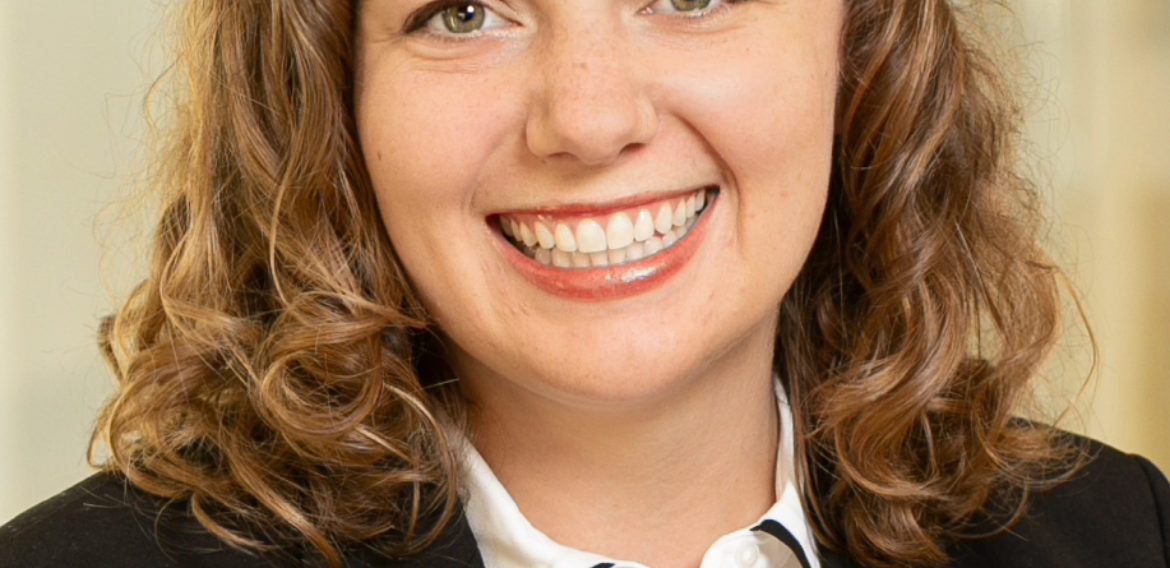Emily Fletcher-Ross School of Business

Name:Emily Fletcher
Age: 27
Hometown: Seattle, WA
Class Year:MBA/MPP Class of 2020
Undergraduate Institution and Major:Dartmouth College, BA in Neuroscience and Anthropology
Pre-MBA Work Experience:One year in global health programs at Dartmouth; Three years in health care research and consulting at The Advisory Board Company
What factors figured most prominently into your decision of where to attend?
The two most important factors in my decision to attend Ross were the community and the emphasis on multidisciplinary learning. The Ross community is intellectually engaged, warm, inclusive, social impact-minded, and enthusiastic about getting to know each individual, and those factors were a differentiator during the school selection process. I also love being in a college town, which brings the community even closer together. Secondly, I only applied to schools where I could pursue a Master of Public Policy degree concurrently with my MBA, and of the schools where I was admitted, Michigan had far and away the most dual degree students, and the university creates a seamless process for moving between schools. When I visited, it was apparent that my perspective as a dual degree student would be respected and appreciated, and I love that I can move easily between the Ford School of Public Policy and the Ross School of Business (both intellectually and physically, as they’re only a block apart!).
Advice to current prospective applicants:
Gather as much information as you can about each school, but don’t disregard the importance of trusting your gut. It’s hard to filter out the noise of what other applicants think is important, but ultimately, you know your goals for business school and what helps you thrive better than anyone else. You will be happier and more successful if you’re able to truly prioritize what is important to you, and rankings might be one of those factors, but they should not be the be-all, end-all of your decision-making process.
One thing you would change or do differently?
I wish I had started earlier gathering information and thinking critically about where I was going to apply. If I were to do it again, I would have applied to the Forte MBALaunch program, which could have helped mitigate some of the uncertainty I felt during the application process, as well as hold me accountable to working on my applications methodically in the months leading up to application deadlines.
Describe a typical day as a MBA student:
I usually wake up around 7:00 am, drink several cups of coffee, and head to class. Midday, I’m typically in group project meetings, at an interesting lecture, or grabbing lunch with friends. In the afternoon, I either have class or office hours for a microeconomics class that I TA for at the public policy school, and in the evening you can find me at recruiting events or a social activity in downtown Ann Arbor. And in the fall, a typical Saturday is spent tailgating and then watching the Michigan football team annihilate rivals (GO BLUE!).
Which industry did you work within before business school and what was your role there?
I worked in health care research and consulting at the Advisory Board Company, where I led strategic planning assessments for cardiovascular service lines at hospitals and health systems. This including market sizing evaluations, analyzing ROI on capital asset investments, projecting market trends for different service offerings, and recommending rationalization of services across sites of care. It was a fantastic introduction to the core consulting skillset, and my desire to build out these skills was part of why I’m pursuing my MBA.
What do you feel are the most important factors when choosing a business school?
I believe the most important factors, beyond the obvious factors you can easily put in a spreadsheet, are the cultural fit and the strength/specific attributes of the alumni network. Business schools are more similar than they’re different and will offer most of the same resources, so it’s important to assess where you feel you’ll truly thrive based on the community. An objectively fantastic, highly ranked business school might not be the best fit for an individual if he or she isn’t happy there and isn’t able to take advantage of the school’s resources as a result. Each school’s alumni network is different in terms of its size, geographic concentration, industry mix, and accessibility, and this was another factor that was critically important in my decision-making process (I actually emailed each school I was admitted to and asked how many alumni they have living in Seattle, as one of my post-business school goals is to live near my family in Seattle after I graduate).
What was your biggest challenge in the MBA application process and why?
At first, it felt unnatural and awkward to write at length about my own professional accomplishments. Both my partner and best friend helped me edit my essays, however, and their feedback and edits helped me get over that and make sure I was appropriately highlighting my background and accomplishments.
What is/was the most enjoyable part about business school?
Beyond the community and the people (which are undoubtedly one of the best parts!), I’ve loved being challenged to think in new ways and assess business challenges using the tools I’m learning in my classes. I didn’t study business or even anything tangentially related to business in undergrad, so the class content is all new and exciting. I’ve loved being back in school and learning skills that feels directly applicable to the world around me and the jobs I want to have when I graduate!
What is/was the hardest part of business school?
Prioritization! There is no shortage of extracurricular opportunities, case competitions, interesting lectures, and social events that vie for my time in business school, not to mention my academic and recruiting commitments. I live and die by my color-coded Google calendar, and one of the most important skills I’ve developed is knowing when to say no to additional commitments. It can feel like sprinting a two-year marathon, so having a strong sense of my own priorities to guide my business school path has been important.
Post-MBA career interests?
I am interested in pursuing a career in consulting in Seattle. Eventually, I hope to translate my project management and problem-solving skills to a civic leadership position in the public sector at the state or local level.
Fun fact about yourself:
My two proudest moments from undergrad were becoming editor-in-chief of the daily student newspaper and winning a dance contest at a Homecoming football game timeout by doing the worm on the field.


